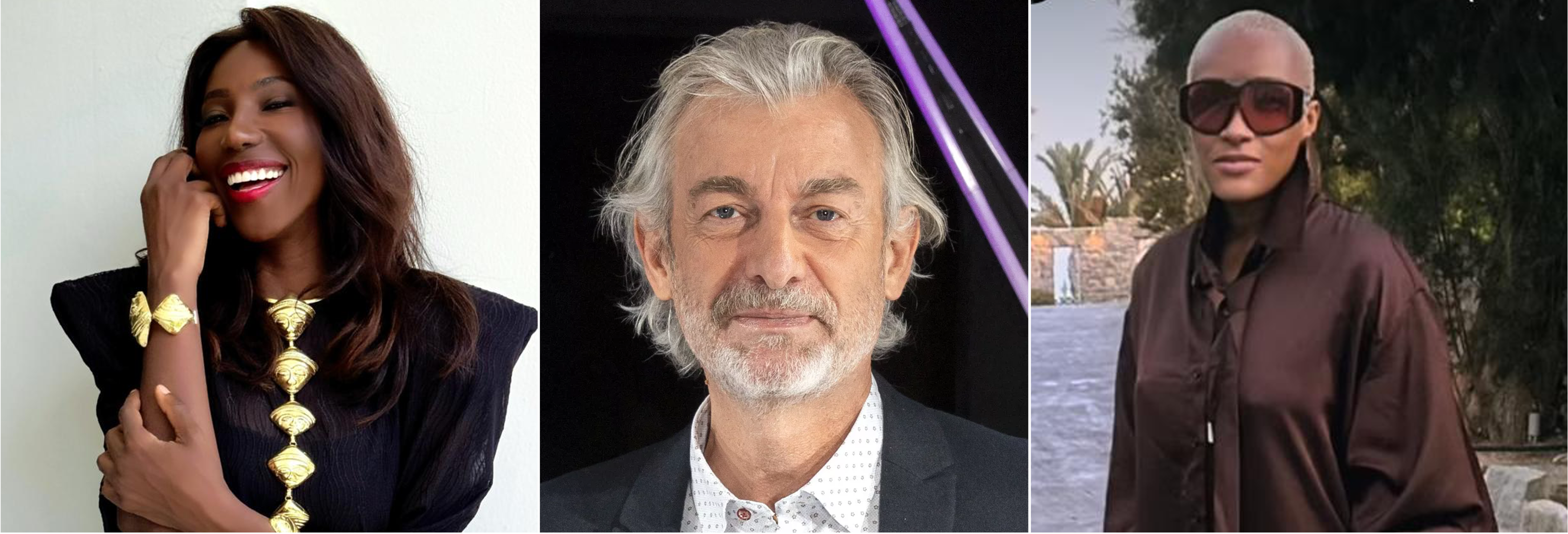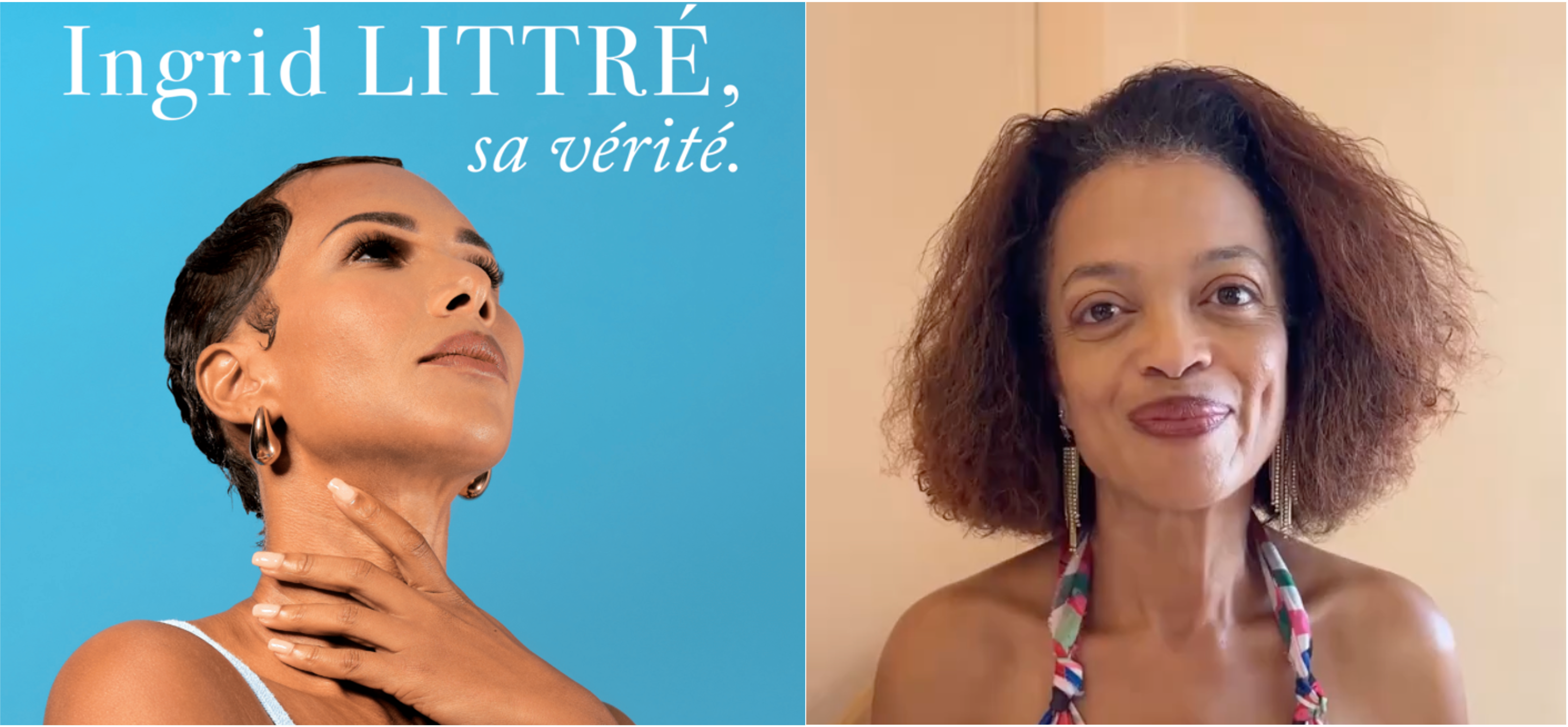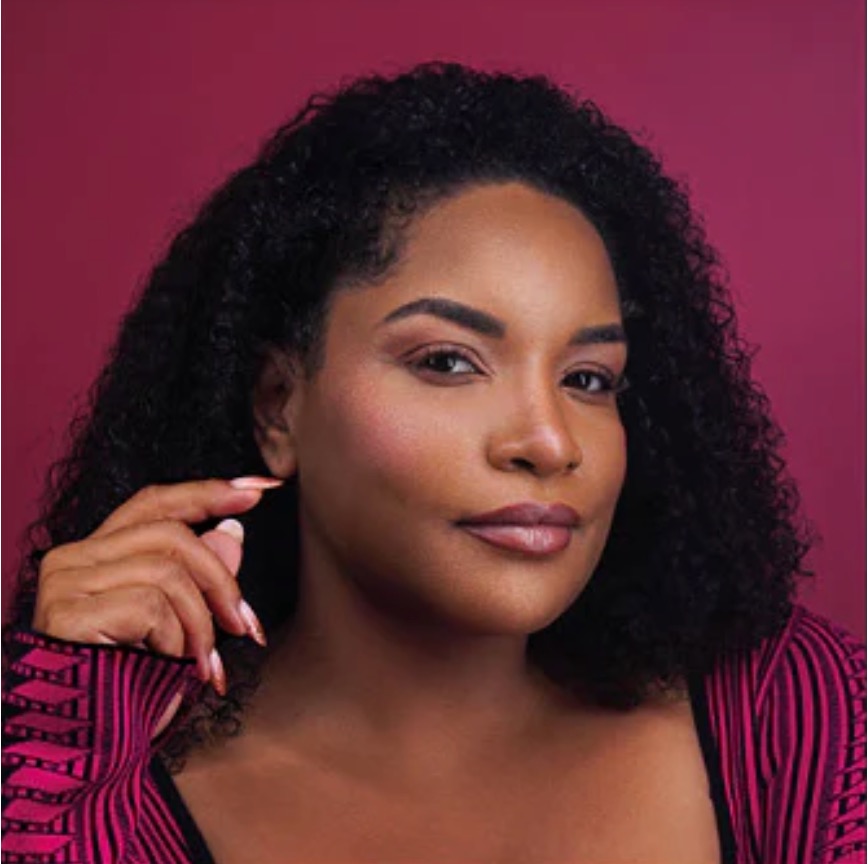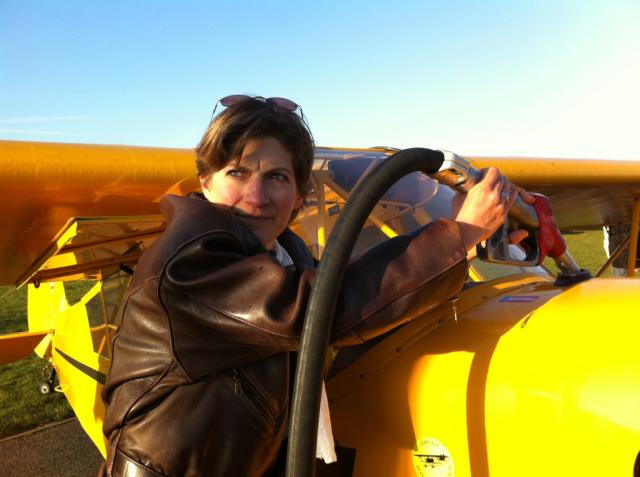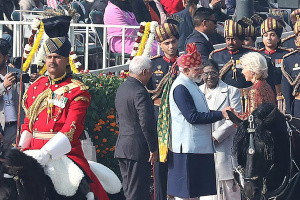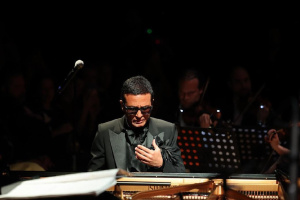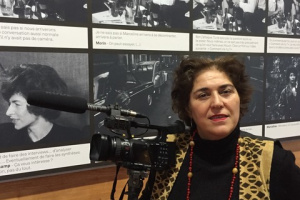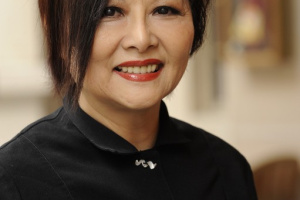VERSIONS EN FRANCAIS, ANGLAIS ET ARABE
FR
Dans l’histoire des révolutions où les peuples crient liberté, le Soudan vient d’écrire une page mémorable… Car au Soudan, les lignes bougent. La fin des manifestations, entamées en décembre 2018, inaugure un nouveau Conseil souverain qui tourne définitivement la page de trois décennies au pouvoir du président soudanais Omar el-Béchir.
Pour la première fois depuis longtemps, les citoyens soudanais, hommes et femmes, s’expriment. Plus que jamais, il est temps de s’intéresser à ce pays où le vent de liberté a déjà commencé à souffler. Opinion internationale a décidé de se pencher sur l’une des figures de ces soulèvements, Madame Alaa Sanah, qui restera incontestablement l’une des icônes de la révolution soudanaise.
Espérons que le régime inédit qui se met en place, alliant représentants du peuple et militaires, saura répondre aux promesses de ce nouveau printemps arabe.
Michel Taube

Le 17 août 2019, à Khartoum, capitale du Soudan, un accord historique entre les généraux au pouvoir et les leaders de la contestation populaire, a été enfin signé, ouvrant la voie à un pouvoir civil, après des mois de manifestations populaires. Une victoire qui revient notamment, peut-être surtout !, à Alaa Sanah, grande figure de la révolution soudanaise.
Alaa Sanah est certainement la femme soudanaise la plus célèbre et l’un des visages féminins les plus remarqués de l’année 2019. Debout sur une voiture, entourée d’une foule à perte de vue, la jeune femme âgée de vingt-deux ans a su orienter les regards du monde entier avec ses chants révolutionnaires.
En ces heures tragiques (de nombreux Soudanais sont tombés) et en même temps historiques pour son pays, la belle Alaa portait bien son prénom qui veut dire en arabe à la fois « élévation » et « excellence ».
La jeune femme est devenue LE symbole de la lutte des femmes au Soudan mais aussi dans tous les pays où les femmes sont loin d’être égales aux hommes. Dans la dictature d’Omar el Béchir, installé depuis 1989 au pouvoir et régie par des lois inspirées de la Charia, les femmes n’avaient aucune place, elles étaient surtout victimes du système. Les lois empêchaient notamment les femmes de se rassembleren public, elles leur imposaient les vêtements à porter et les châtiments qui leur étaient imposés allaient des coups de fouet à la lapidation. Aujourd’hui le dictateur soudanais, poursuivi par ailleurs par la Cour Pénale Internationale, est jugé par la justice de son pays.
Celle qui est devenue « la reine de Nubie » pour la BBC et « la statue de la liberté soudanaise » pour un internaute sur Twitter n’a pas hésité à brandir haut et fort son engagement pour davantage de liberté et une vie meilleure. Elle a ainsi contribué à la visibilité des femmes dans la révolution soudanaise.
Et pourtant, elle reste profondément modeste, refusant de s’élever au-dessus des autres femmes ayant manifesté. « Je ne suis pas une icône. Ce sont tous les révolutionnaires qui sont des icônes. Et moi je suis seulement l’une d’entre eux », explique-t-elle à l’AFP. Et d’ajouter : « La femme soudanaise était présente dans tous les mouvements historiques du pays. Elles sont sorties manifester pour défendre la cause des femmes et celle du Soudan. Elles représentent leur pays. »
Après une telle mobilisation et une telle popularité, on aurait pu espérer que Alaa Sanah fît partie du Conseil souverain formé le 21 août 2019 et présidé par l’économiste Abdallah Hamdok. Remplaçant le Conseil militaire, celui-ci est chargé de mener la transition pendant un peu plus de trois ans au Soudan, en supervisant la formation du gouvernement (dont l’annonce est prévue le 28 août) et d’un Parlement de transition. Alaa Sanah n’en est pas finalement.
Néanmoins, on saluera chaleureusement les deux femmes qui font partie du Conseil (sur onze, six civils et cinq militaires) : Aisha Moussa Saeed (professeur d’anglais, militante, parmi les plus critiques à l’égard du régime militaire) et Raja Nicolas Abdel Massih (ancien officier de police, ancienne conseillère juridique, issue de la minorité chrétienne). Celles-ci, on ose le croire, pourront donner une nouvelle place aux femmes dans le Soudan de demain.
Espérons que les droits des femmes et leurs libertés sortent renforcées sous ce nouveau régime !
Sofia Farhat
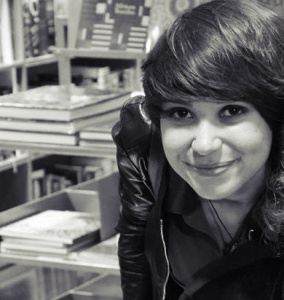
ENGLISH
« Sois belle et ouvre-la » with Alaa Sanah, the « new queen of Nubia », icon of the Sudanese revolution
The wave of democratic revolutions just hit Sudan and a new chapter in its history is being written.
Things are moving fast : the end of the demonstrations that started in December, 2018, have paved the way for a Sovereign Council, overthrowing Omar al-Bashir who has ruled Sudan with an iron fist for three decades.
For the first time in a long time, Sudanese citizen – men and women – speak out without fear. Thus, it is crucial to take time to analyze the changes occurring in Sudan. « Opinion internationale » has decided to focus on a well-noticed figure of these uprisings, Mrs. Alaa Sanah, who will remain – without any doubt – the icon of the Sudanese revolution.
Let’s all hope that the new regime, combining representatives of the people and the military, will be good enough to meet the promises of this new Arab Spring.
Michel Taube
On August 17th, 2019, in Khartoum, capital of Sudan, a historic agreement between the ruling generals and the leaders of the popular protest, was finally signed, paving the way towards a civilian leadership, months after the popular uprising started. One of most the noticed figures of the revolution is Alaa Sanah.
Today, Alaa Sanah is certainly the most famous Sudanese woman and one of the major political figures in 2019. Proudly standing on a white car and surrounded by an endless croud, the twenty-two year old woman drew the world’s attention with her revolutionary songs.
In the most tragic hours of Sudan – where more than two hundred people lost their lives for democracy – the stunning Alaa proved that she bears her name well. In Arabic, « Alaa » means « elevation » and « excellence ».
The young woman became THE symbol of the struggle of women in Sudan, but also in all countries where women are yet far from being equal to men. Women were the major victims of the dictatorship of Omar el Bashir, in place since 1989, and ruled by the Islamic law, the « Sharia ». The laws prevented women from gathering in public, they restricted their freedom to dress as they wished, and the punishments they were subjected to ranged from whipping to stoning… Thankfully, the Sudanese dictator is now prosecuted by the International Criminal Court.
Alaa Sanah, who became the new « Queen of Nubia » according to the BBC and « The Sudanese statue of Liberty » for a Tweeter user, shared loudly her commitment to more freedom and a better life in Sudan. She has thus contributed to the visibility of women in the Sudanese revolution.
And yet, she remains profoundly modest, refusing to get more attention than the other women. « I am not an icon. All of them are. And I am just one of them », she told the FPA (French Press Agency). « Sudanese women have always been in the frontline of the historical movements. They demonstrated to defend the cause of all Sudanese women. »
After her extensive mobilization and the raise of her popularity, one would have hoped that Alaa Sanah would be part of the Sovereign Council formed on August 21st,2019, and presided by the economist Abdallah Hamdok. Replacing the Military Council, the Sovereign Council will be leading the transition for three years. It will oversee the formation of the government (whose announcement is scheduled for August 28th) and the Parliament. Nevertheless, we warmly welcome the two other women who are part of the Council (on a total of eleven, of which six civilians and five militaries) : Aisha Moussa Saeed (an English teacher, an activist, among the most critical of the military regime) and Raja Nicolas Abdel Massih (former police officer, from the Christian minority).
One dares to believe that both of them will be able to give a new place for women in tomorrow’s Sudan.
We warmly hope that the rights of women and their freedoms come out stronger under this new regime !
Sofia Farhat
ARABE
مع علاء سناح، « ملكة النوبة الجديدة » ، أيقونة الثورة السودانية
« Sois belle et ouvre-la »
.موجة الثورات الديمقراطية تضرب السودان الذي يكتبصفحة جديدة من تاريخه
الخطوط تتحرك: نهاية المظاهرات التي بدأت في ديسمبر 2018 ، مهدت الطريقللمجلس السيادي ،الذيأطاح عمر البشير الذي حكم السودان لمدة ثلاثة عقود.
لأول مرة منذ فترة طويلة ، المواطنين السودانيون– رجالا ونساء –يعبّرون عن مطالباتهمدون خوف. وبالتالي ، من الضروري أن نحلّل التغيرات التي تجريفي السودان. لذلكقررتصحيفةOpinion internationaleالتركيز على شخصية معروفةفي السودان اليوم، السيدة علاء سناح، التي ستبقى – بلا شك – أيقونة الثورة السودانية.
نأمل أن النظام الجديد، الذي يجمعكل مابين ممثلي الشعب والجيش،سيحترممبادئ الربيع العربي.
Michel Taube
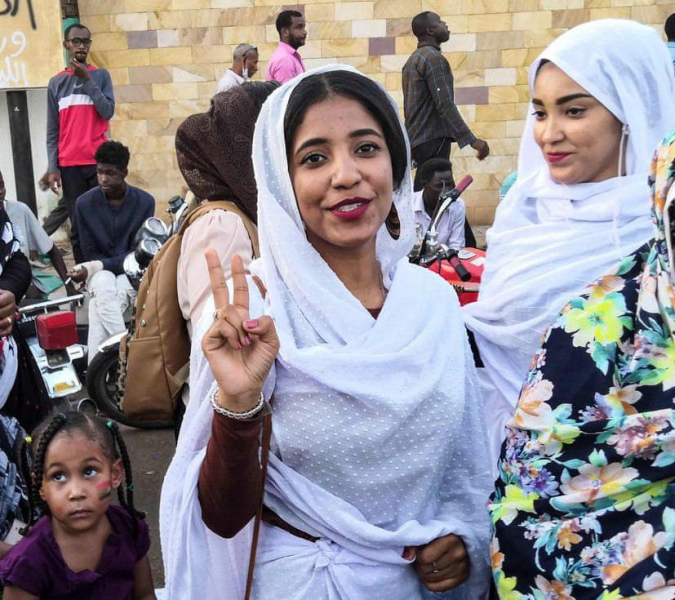
في ١٧ اغسطس ٢٠١٩، في الخرطوم، عاصمة السودان، تمّ امضاء اتفاق تاريخي ما بين الجنرالات الحاكمين وقادة الاحتجاج الشعبي. الاتفاق يفتح صفحة جديدة للسلطة المدنيّة، شهور بعد بداية المظاهرات الشعبية. ومن ضمن المتاظاهرين لقد برزت السيّدة علاء سناح، التي اصبحت رمزاً للثورة السودانية على الصعيد العالمي.
لقد حصلت علاء سناح بتلك الصفة بعد ان وقفت على ظهر سيّارة بيضاء، وسحبت أنظار كلّ المتظاهرين ـ والعالم أيضًا! ـ بأغانيها الثورية. والشابّة فقط في الثانية والعشرين من عمرها…
في هذه الأوقاطالمأساويةوالتاريخيّة للسودان ـ حيث سقط فوق مائتي شهص بإسم الديمقراتيّة ـ لقد أثبتت علاء سناح أنها تحمل فعلاً إسمها « علاء ».
وهكذا أصبحت الشابة رمزا لنضال المرأة في السودان وفي جميع البلدان حيثالمرأة ليست مساوية للرجل. حقاً، ففيديكتاتورية عمر البشيرالتي بدأتفي ١٩٨٩، لم يكن للمرأة مكان. كانت ضحيّة النظام، الذي كان يمنعها من التجمّع مع نساء أخريات في الأماكن العامّة، ويمنعها من ارتداء الملابس التي تشاء، وكانت العقوبات تجاهها قاصية جداً ؛ متى الجلد ومتى الرجم…
اليوم،الديكتاتور السوداني يُحاكم من قبل المحكمة الجنائية الدولية.
الشابّة التي أصبحت « ملكة النوبة » الحصريّةلل « بي بي سي » و« تمثال الحرية السودانية » لشخص على شبكة التواصل الإجتماعي « تويتر»، دافعت وطالبت بشجاعة بمزيد من الحريّة وحياة أفضل في السودان. فقد ساهمتفي بروز المرأة في الثورة السودانية.
ومع ذلك، فهي لا تزال متواضعة للغاية، وترفض الارتفاع فوق باق النساء. « أنا لست أيقونة. أنا فقط شخصاً من بين الأشخاص الذين قاموا بهذه الثورة… »، قالت علاء لوكالة « فرانس برس ». وأضافت : « كانت المرأة السودانية حاضرة في كل المظاهرات التاريخيّة في السودان.»
في ٢١أغسطس٢٠١٩، تشكّل المجلس السياديفي السودانبرئاسة الاقتصادي عبد الله حمدوك. وهذا المجلس مسؤول عن قيادة عمليّة الإنتقال في البلد لمدّة ثلاث سنوات والإشراف على تشكيل الحكومة(من المقرر إعلانهافي ٢٨ أغسطس)وبرلمانالإنتقال.
كنا نتمنّىأن تكون علاء سناح عضواً في هذا المجلس…
ومع ذلك، نرحب ترحيبا حاراًبالامرأتين اللتين دخلتين إلىالمجلس (المشكل منستة مدنيين وخمسة جنود): السيّدة عائشة موسى سعيد (معلمة إنجليزية، من الأهم من نقدوا النظام السابق) و السيّدة راجانيكولاس عبد المسيح (ضابط شرطةمن الأقلية المسيحية).
نؤمن بأنّ المجلس الجديد سيعطي حقوق و حريّة أهم للمرأة السودانية!
صوفيا فرحات














